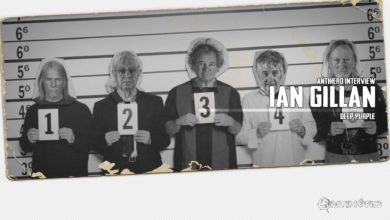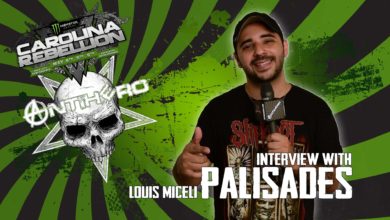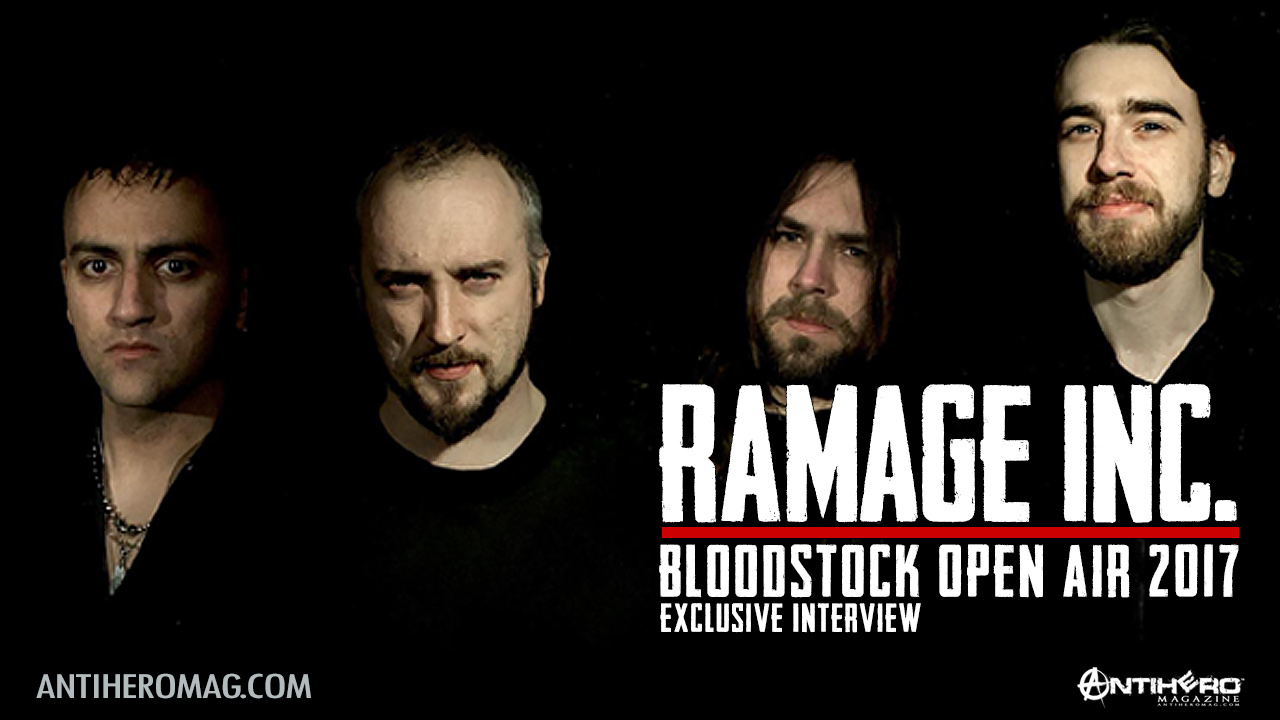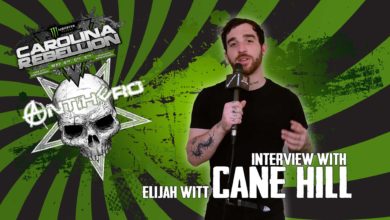Glen Matlock is an English musician best known for being the bass guitarist in the original line-up of the punk rock band the Sex Pistols. He is officially credited as a co-author on 10 of the 12 songs on Never Mind the Bollocks, Here’s the Sex Pistols, although he had left the band by the time the record was released and much of the bass parts were played by Steve Jones. He also continues to make his own records and tour with various bands, including the Sex Pistols. Next month he will be releasing his debut solo album and I was fortunate enough to have a face-face chat with the punk rock legend himself. No bollocks just straight talking with Glen.
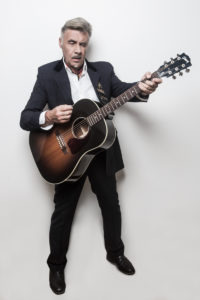 ANTIHERO: I just wondered initially if you felt that your association with the Sex Pistols name has helped or hindered your subsequent musical career?
ANTIHERO: I just wondered initially if you felt that your association with the Sex Pistols name has helped or hindered your subsequent musical career?
Glen Matlock: It’s a double-edged sword. It’s helped some ways, everybody expects you to sort of sound like the Sex Pistols from 40 years ago. And the Sex Pistols was, the total was more than the sum of the parts. I had a pretty big part to play in that, but I just don’t want to sound like that anymore. I’ve made a record, that, I don’t know what you’ve heard of it.
ANTIHERO: Yeah, I have heard your recent solo album release.
Glen Matlock: I haven’t tried to sound like the Sex Pistols or failed miserably, I’ve tried to do what, where I’m at now, with my mates and musicians, we’re there and appreciate which I feel very blessed that my mates play on my record, for next to nothing. So I mean it’s like that these days, everybody helps each other out. And we’ve ended up with that. There’s a bunch of songs I’ve been writing over the past few years and sort of picked them out among the thing that kind of make the whole somehow. Whole. W-h-o-l-e. That’s that really.
I am pleased with the result. Any success I’ve had was by not doing what people have expected of me. If the Sex Pistols had done what was going down at the time we would’ve either sounded like Kenny, the bass that evolves or a light sort of jazz/funk band. So it’s just as well we didn’t. And then after I had the Rich Kids, I got into some slightly different things and had some success with that. There’s a little ahead of our time.
I’m just trying to keep people guessing a little bit. The other thing, I’ve been doing lots and lots of just solo stand up acoustic shows all around the world. It always goes down really well and the band I chose was kind of a band version of that somehow. It’s kind of been a bit of a rough couple of years, schedule-wise, for some of the songs, but it hasn’t stopped us tackling the big songs albums, even a cover of a Scott Walker song on the album.So yeah, it’s a mixed bag that all adds up to about where it is now, hopefully.
ANTIHERO: Do you feel like the fact that you’ve written some iconic songs in the past, that it brings an increased pressure and weight to anything that you subsequently put out after that?
Glen Matlock: Not really, no. I’ve always just done what I’ve done anyway, you know. These days, I’m nearly 62, I’m not going to be #1 on some teeny-bop chart anywhere. I might as well go out and make a record to please myself. If people like that, great. If they don’t, well, there you go. I think I’m relatively happy with what I’ve done over the years, and I think that it’s gotten a reaction to what that all means musically.
ANTIHERO: What about the album recording itself? You mentioned there you have a few friends playing on that. Did you record it al old style, all live in the studio, just jamming out the songs, or- utilising more modern methods.
Glen Matlock: Yeah, pretty much. We did it in the studio in upstate New York, a place called Rhinebeck, Clubhouse in a town called Rhinebeck, which is a beautiful town up the Hudson Valley, that was suggested by Earl Slick who plays most of the guitar on the album, not all of it, and it’s convenient because I live in London, he lives round the corner from there, Slim Jim Phantom lives in Los Angeles, and Slim-Jim plays drums on most of the album. We recorded about 16, 17 songs, while we was there, backing tracks and all our outfits. And I brought the tape back to London, recorded all the vocals from my and Jim Lowe’s, who actually plays bass on the album, but is a producer and engineer in his own right, and he does all the stereophonic stuff. We went back there, and then we sent the tapes back to America and Mario McNulty.
If it’s Lowe’s album with all ours, mixed in, then that’s kind of–it came out 10 years ago now, and in the meantime, I’ve been writing a bit more, and I chose three songs that I cut with some guys over here where Slim Jim plays. Songs are on one or two of the newer ones, when he was in London, that’s a bit of a mixed bag. But I think, when you hear the album in its entirety, it all hangs together pretty well.
ANTIHERO: You mentioned there, the Scott Walker cover. I just wondered, what’s your personal connection to that particular song? And was it an easy or difficult choice to make, to include that track on the album?
Glen Matlock: Well, what had happened was that I’ve been doing it live for a while, and I did it because I’m a bit of a fan of Jacques Brel, and I like playing some Jacques Brel music I was a big fan of them when I was a young lad. In everywhere I can’t, how people knew that they were good songs to cover, because we sang in French. And then I found an album, which does what it says on the tin, Scott Walker sings Jacques Brel Well, the all-English version of it. And it’s fantastic, so I kind of looked into Scott Walker a bit more. He was obviously a hit in the 60s, and I found that he’s trying to write a song like Jacques Berl in my mind. So I thought I’d have a go at it.
I know it had a laugh with the audience, when I said it was Scott Walker who did the song with his sexy, brought-down, baritone voice. And if somebody sits bass orchestra and look, it’s me with the acoustic. I’m going to do it anyway. They will laugh, but it always goes down well, even they’re really hard songs. It’s a very tentative, and a heavy song lyrically, difficult changes in melody.
Anyway, when we were in the studio, I think someone just brought the snare-skin, and was trying to match and I was just looking what to write a song on . And someone said, what’s that? And I said it’s a Scott Walker song. He said, hey, I’ve got an idea for that, can we have a guy in. So we did. And then we started narrowing it down a little bit, and then there’s some knocking around, so Slim Jim got his pieces out and played around on the kettle drums and off we went. And that’s it. He plays a bit,now we try and build it up, so it sounds like an orchestra. Yeah. So that’s why we did that one and I liked the version.So yes as its obviously particular to Scott Walker due to what happened to him in his life, but I think we’ve all got the one that you cherish.Everyone can therefore relate to it.
ANTIHERO: I was curious, and this is taking you way back… What was the first song that you actually figured out to play, when you first started playing music?
Glen Matlock: Oh easy. “Hold Your Head Up” by Argent. And it’s easy because it’s got one bass line all the way through. Bum, doomdah doom, doomdah doom, doomdah doom, doomdah doom doom doom. That was easy, and then I was kind of learning songs as I got a bit older and even with the Sex Pistols, even before John was in the band, we can’t have realised. If you try to play something and it’s a little odd, and you get it wrong, you soon got your own thing going, and then it becomes a new song. There’s artistic integrity in, it’s a bit too hard.
ANTIHERO: Do you remember hearing a song of yours on the radio for the first time?
Glen Matlock: No, but what I do remember is, when Anarchy in the UK come out, me and Steve Jones lived in Denmark, so we’re supposed to solar and wonder. And I just went into HMV, maybe those in records, which is by Tuppercourt Road, walked in, just to see if I had it in stock. I said oh, just interested. You got back a lot of Sex Pistols from Glen the new guy and blow something of it. I said, well I’m betting my money on the [crosstalk 00:08:34]. And as I turned round, was walking out the store, like putting it on really loud, then he realised who I was. I had no idea that people would think who I was. And it’s fucking great. I thought, oh, I must be recognised.
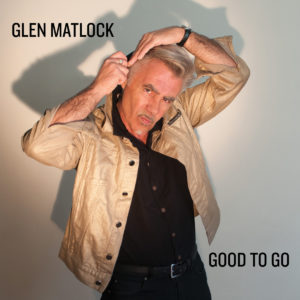 ANTIHERO: Does it still give you that same buzz when you hear your stuff like that?
ANTIHERO: Does it still give you that same buzz when you hear your stuff like that?
Glen Matlock: Anything sounds great. I think, all roads really vie to rock and roll records. Something about them. They’re timeless. Gene Vincent, Little Richard, they’re all rich, you really got my kinks, and it gave me a career. It’s a sound bias. I’ll think, I would try that, but there’s an element to that that’s far more common on the album, I’ve got loads of hits today. Just of a very ghoulish Rolling Stones, except for the bass, but it sounds pretty. It sounds good to me.
ANTIHERO: Is it easier or more difficult to have a job as a professional musician in 2018 than when you first started?
Glen Matlock: It’s different, it’s a different beast. It’s both. All you have to do is do loads of different things. And I enjoy doing loads of different things. Okay I’m making an album and it comes out in 2008 at the age of 60, I mean, it’s pretty cool news. Labour a lot but that’s my artistic integrity. I kind of do gigs because I like doing them, but they make not a fortune, but nice little learners, and then make do of the bass section and mates and things. Whatever tracks on the album, Chris Spedding plays them.And it’s a connection there, because it’s Pistols sort of stuff. I had written this song, it’s the last song on the album, which is called Come Push You. I put the tracks down with my mike, and there’s lots of programmes in that one, and I’ve just been back to the ripple effect and thought, I need something. And I came up with a guitar riff, which sounded a bit like something else. It’s kind of like the guitar solo in the Price of Love, the old Everly Brothers song? So I just kind of had a look on YouTube, and the video come up of him doing it, which they didn’t play in the band. So he played on lots of those solo stuff. In fact, he still plays around with them at the moment.
And so, I just called him up, I said hello, and we just chatted. And easily he could toss out a line, and he just sort of twanging on the guitar and I said, thanks for coming down. He said, sure, and he came down to the studio the next day, did it, it sounded great. I said what you want to do with it? He said well, to be honest, Glen, you played bass on the track of my album, so I think let’s just call it quits. So, that kind of goes on quite a lot.
ANTIHERO: Do you feel that the music industry has taught you any major life lessons? Anything you’ve learned over the years?
Glen Matlock: Yeah, get the best lawyer that you can possible on a song, and it’ll work out. It’s like give it a long one. All this time, I used to think most musicians and any kind of performer, they’ll tell you that they don’t really feel part of the music business. There’s a music business, and then there’s musicians. And it’s not being used, I mean loads I mean, sort of convoluted, sort of stick their neck out a little bit.
Oh see, it’s the funny one. I can’t complain about my life at the moment. I earned a fortune, gone on and got a gig in it, came over to make things coming up, I come back and I look at my career, and I’m like, turn up for that. I’m playing at the Thame Town Festival, on the demarcation, not demarcation, the demonetizing So, I’m doing that, and now I’ve come back and now I’m off to India, I got a show over there. I’m not out in the full, but it’s a nice little trip I’ve quite the start in.
And then at the end of July, it’s the 30th and 31st of July 1st to 3rd of August, I’ve got a residency at this really nice club called Boisdale’s of Canary Wharf. Earl Slick’s coming on to play the lead guitar for that, that’s cool. And then I’ve got another thing I’m doing with Slim Jim in July that Chris Spedding’s going to come out with us, playing at the Opera house there. I’m not next to nothing. I’ve done about 50 gigs this year already, so I hang up for the top kick matches, and matches. They’re bringing us all around Europe. I can’t believe how big this is, and I can’t make it either. We’ve done like 15,000 seats and it’s all spread out with Earl on the acoustic guitar. It went down pretty good.
ANTIHERO: You mentioned places, touring plans there, India, Korea, Dubai. I just wondered, when you go to places like that, if it’s for the first time or you’re just returning, do you take time to experience the culture, the people?
Glen Matlock: Of course, I do, yeah. Very much so, and the beauty of doing something like that when you’re a musician and you’re normally part of some kind of entourage or other people you’re playing with. They know what’s what, so you get there, and you’re immediately not a tourist. They know the hip places to go to and the places that kind of sting you.
I remember I was trying to go places a few years back, and I had a song played in a band I was in. And we’d been burning off, but one of them got ~the phone with …. And we went to Tokyo, we headlined the Fiji Festival, so that was great. And we got there and, well everybody knows you’re staying and I know this hotel. And you’re too jet-lagged and knackered to go wandering around the first night, so you go down to the traditional Japanese restaurant downstairs in the hotel. And all got the kimonos on all that. Very nice meal. We head out, everybody, now he’s got a fee. And then he got the bill and he looked and he went, and then the road manager picked up the bill and he said, well everybody’s in the band, so let’s call this a band meal, and he took it out of the thing, and Bernie was like phew.
But the next night, we had a bit more time. We ended up on the round. There’s a restaurant round the corner, equally as good, if not better. But it was about a quarter of the price. You just have to be in the know for those kinds of things.
ANTIHERO: How would you like people to remember you? What would you like to be remembered for? Would it be something musical or something that you’ve down outside of music?
Glen Matlock: I think what my prime ambitions for these days is to try and be respected for what I do now. I’m quite a reasonable songwriter. I think as you live life a little bit, and you get a bit more of a take on life and hopefully that comes fro you in the lurks, somehow. And I just don’t think people will give me the time of day a bit more now, and then they’ll just keep glamorising the past.And I think this applies to everybody in the Sex Pistols. Nobody individually has ever eclipsed that. But it don’t stop them from wanting to try. I mean, I get the Pistols thing a bit.
ANTIHERO: It must piss you off too as well.
Glen Matlock: That’s why does the public image says so much. Knowing who’s turning on, who’s watching, who’s doesn’t.
ANTIHERO: Well, you mentioned there, was it Camden? I just wondered if you had any more plans for extensive tours of the UK?
Glen Matlock: Well, that’s what I want to do, yeah. In this day and age, I’m still got other dukes. I remember the guys I met in ’78, but we’re trying to set things up, but normally these things depend upon the record being easy to get. So we’ll wait and see, but I was saying, there’s not that much left. But that’s not much on the telly, anything you get paid a few bucks to go and show off, but that’s what we should be doing.
ANTIHERO: What about those shows abroad that we discussed? Will you be playing much of the new album, the good-to-go album, with all those hits?
Glen Matlock: I think I’ve got quite a good blueprint, so when I play, it’ll hopefully be something old, something new, something borrowed, and something a little bit bluesy. It’s kind of what I do. I’m going to focus on seeing David Bowie, and you can playing heroes, and I’m going on just a band. Just chat with songs, what you got to do, but let’s be reasonable. I’m not going to do the Sex Pistols on my acoustic guitar or like that. I think they’re bright enough to realise they can’t expect that. And that’s not all, you toss them a bone, then there’s a trade-off. I’ll play what you want, let me play what I want.
And they normally all hang together pretty well, because I used to play what wrote well.
ANTIHERO: Just a final one then, Glen. I just wondered–I’m sure you’ve done hundreds of these interviews over the years. Who would you like to sit down and interview, with you asking the questions?
Glen Matlock: You know what? I know I’ve been very fortunate to meet in my cup of time, but if there were ever a time to ask questions, I always wanted to speak to David Bowie.
ANTIHERO: Glen, it’s been great, thank you very much.


